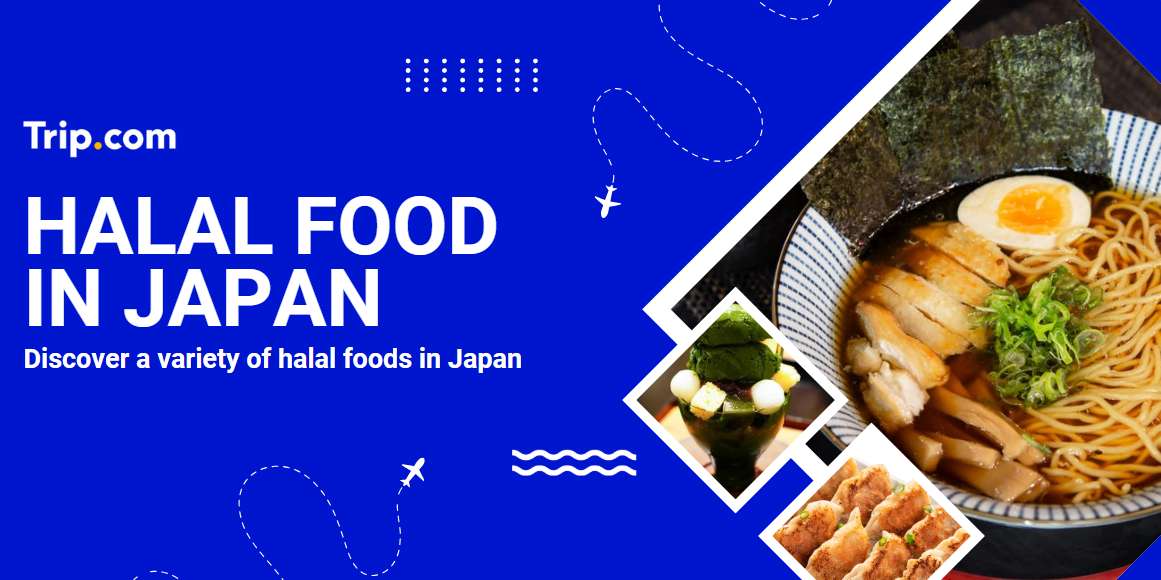
Halal food is food that is allowed for Muslims to eat 🍽️. The word "halal" means "permitted" in Arabic 🕌. For food to be halal, it must follow Islamic rules. This means it should not have any pork 🐷 or alcohol 🍷, because those are not allowed in Islam. If the food has meat 🍗, the animal must be healthy and treated kindly before being killed in a special way. A prayer is said during the process 🙏, and the blood must be fully removed.
Halal food must also be clean and not mixed with anything that is not halal 🧼❌. This includes the ingredients and the way the food is cooked or prepared 🍳. Many Muslims look for halal signs ✅ or ask if the food is halal before eating it to make sure it follows their religion ✨.

🌸Halal Food In Japan
Finding halal food in Japan is becoming easier, especially in big cities like Tokyo, Osaka, Kyoto, and popular tourist spots. Japan is making more effort to welcome Muslim travelers by offering more halal-friendly options at restaurants, cafés, and even convenience stores. Many Japanese dishes, like sushi 🍣, ramen 🍜, and curry rice 🍛, are now being adapted to fit halal standards. For example, some ramen shops use chicken or seafood broth instead of pork, and halal yakiniku restaurants offer high-quality beef 🥩 with no alcohol-based sauces.
You can also find plenty of international halal food, such as Turkish kebabs, Indian curries, and Malaysian dishes. These are often found near mosques 🕌 or tourist areas. To make things easier, some restaurants have halal certification, and others may have “Muslim-friendly” signs, meaning they don’t serve pork or alcohol but might not be fully certified.
🍜 Must-Try Local Dish in Japan
🍜 Slurping Up Halal Ramen in Tokyo
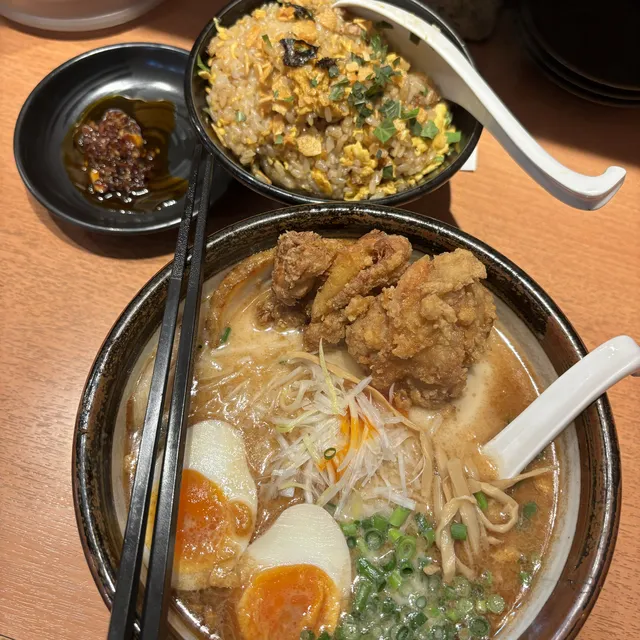
📝 I stumbled upon this cozy little ramen shop near Asakusa after a long day of exploring temples. The place had a comforting smell of soy broth and sizzling garlic that pulled me right in. When the bowl arrived, steam rose like a welcome hug. I took a sip of the golden, chicken-based broth rich, savory, and deeply satisfying. The noodles were perfectly chewy, and the sliced halal beef on top melted in my mouth. Each bite was a warm, soul-soothing experience.
📖 Ramen is one of Japan’s most iconic dishes, usually made with pork broth. But halal versions are now widely available using chicken or seafood bases and no alcohol in the seasoning. It's a beautiful example of Japanese flavor adapted with care.
🍽️Restaurant | 📍Location | 💰Cost |
Naritaya Halal Ramen | Asakusa, Tokyo | Around ¥1,000 |
Ayam-YA Tokyo | Okachimachi, Tokyo | Around ¥1,200 |
💡 Pro Tips
- Ask for spicy miso if you like heat 🔥
- Add a soft-boiled egg or extra bamboo shoots 🍳
- Come early some shops sell out quickly!
👨👩👧👦 Perfect for ramen lovers, first-time Japan visitors, and Muslim travelers looking for authentic flavors.
🍛 A Comforting Spoonful of Halal Japanese Curry in Osaka
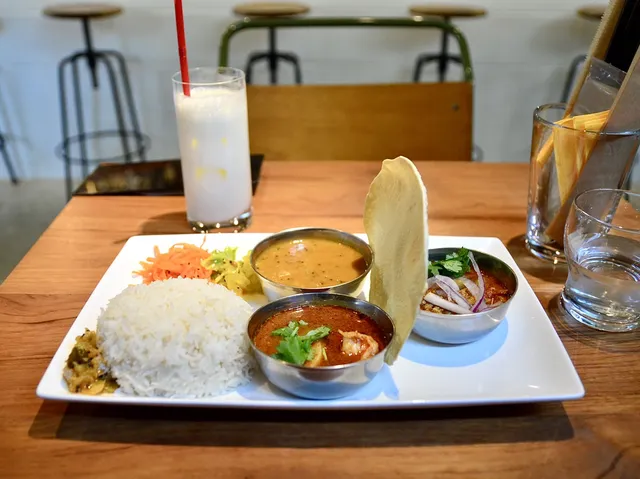
📝 Wandering through Namba on a chilly evening, I found a halal curry spot tucked in a side street. The aroma of spices stopped me in my tracks. When the plate arrived, it looked like a warm, golden hug steaming curry poured over fluffy rice with crispy chicken katsu on the side. The first bite was creamy and slightly sweet, followed by a gentle heat. The fried chicken was juicy with a perfect crunch. I cleaned the plate in minutes.
📖 Japanese curry is milder and sweeter than Indian or Thai versions. It’s thick, hearty, and loved across the country. Halal versions avoid meat-based lard or alcohol-based sauces, making it accessible for everyone.
🍽️Restaurant | 📍Location | 💰Cost |
Matsuri | Osaka, near Namba | Around ¥1,200 |
CoCo Ichibanya (Halal) | Nishi-Shinjuku, Tokyo | Around ¥1,000 |
💡 Pro Tips
- Choose your spice level (1–10 scale) 🌶️
- Try it with cheese topping, it’s surprisingly good 🧀
- Order pickled radish on the side for a crunchy contrast
👨👩👧👦 Persona Fit
Great for comfort food seekers, families, and anyone who prefers mild spice.
🍢 Grilled to Perfection: Halal Yakitori in Kyoto
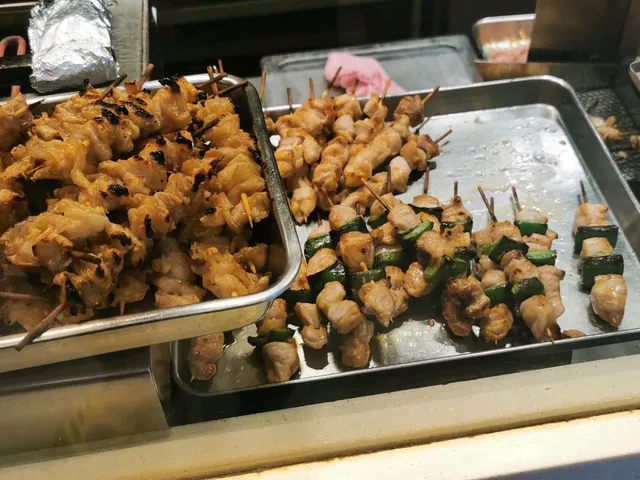
📝 I found this tiny halal yakitori stall in the alleyways of Gion while hunting for something light and tasty. The smoky scent of charcoal-grilled skewers was impossible to resist. I ordered a set chicken thigh, scallion, and mushroom. As soon as I took a bite, I was hooked. The meat was tender, juicy, and seasoned just right. The sweet soy glaze had a deep, umami richness that made me lick my fingers clean.
📖 Yakitori means grilled chicken skewers and is a favorite Japanese street food. Halal versions avoid alcohol-based marinades and use quality halal chicken. It’s often enjoyed in izakaya-style settings with tea or juice instead of sake.
🍽️Restaurant | 📍Location | 💰Cost |
Ganko Sushi (Halal menu) | Kyoto Gion | Around ¥1,500 |
Kappou Yama | Kyoto Station area | Around ¥1,200 |
💡 Pro Tips
- Pair with grilled veggies like shiitake or green pepper 🍄
- Order the "tare" sauce version for a sweet-salty kick
- Go at sunset for a cozy, local vibe 🌇
👨👩👧👦 Persona Fit
Ideal for light eaters, grilled food lovers, and halal-conscious street food fans.
🥟 Halal Gyoza That Hits the Spot in Kobe
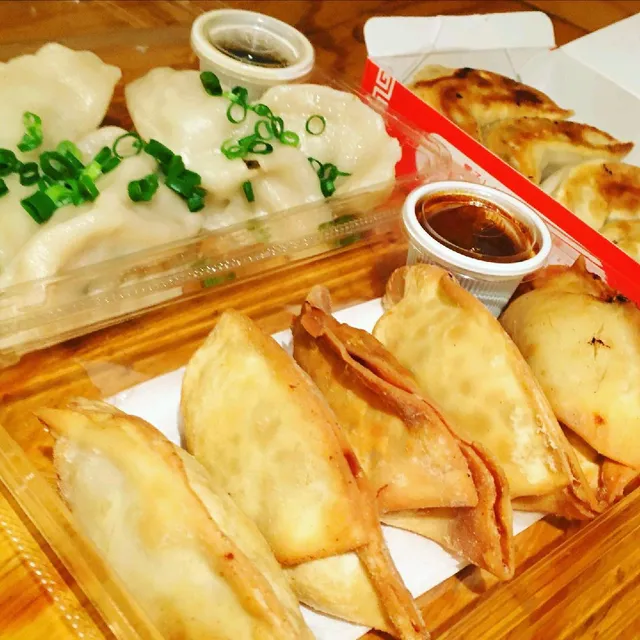
📝 I stopped by a halal-friendly Chinese-Japanese fusion spot near Kobe Mosque. The smell of garlic and sesame oil told me I was in for something special. When the gyoza arrived pan-fried golden with crisp edges and juicy insides I dipped one in soy sauce and took a bite. The filling was a perfect mix of halal ground chicken, cabbage, and chives. It was warm, flavorful, and just the right amount of garlicky.
📖 Gyoza are Japanese dumplings, inspired by Chinese jiaozi. Usually made with pork, halal versions use chicken or beef and no alcohol in the sauce. They’re beloved for their crispy bottom and juicy center.
🍽️Restaurant | 📍Location | 💰Cost |
Muhammad Ali Restaurant | Kobe, near the mosque | Around ¥800 |
Rasa Malaysia | Osaka | Around ¥900 |
💡 Pro Tips
- Try them steamed or fried both are tasty
- Ask for chili oil or vinegar soy dip 🥢
- Pair with a side of halal fried rice for a full meal
👨👩👧👦 Perfect for dumpling fans, picky eaters, and those craving comfort snacks.
🍵 A Sweet Moment with Matcha Halal Parfait in Tokyo
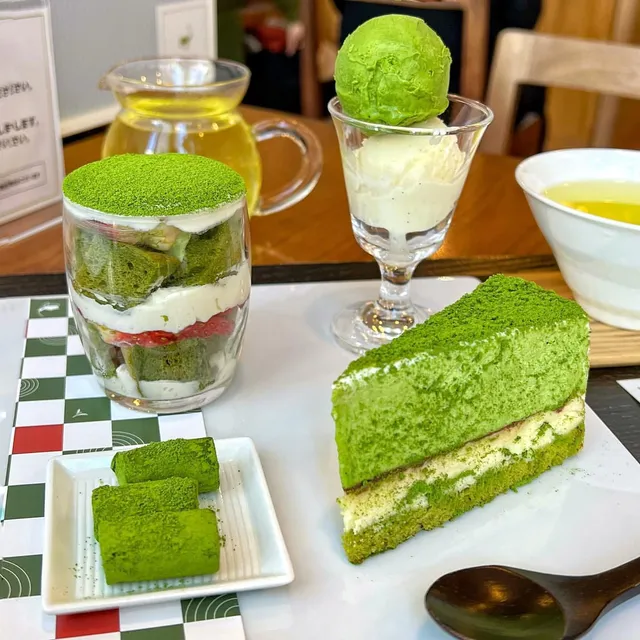
📝 After a savory lunch, I found a halal-certified dessert café in Shibuya. The moment I saw the matcha parfait layers of green tea jelly, red bean paste, mochi, and creamy soft serve I knew I had to try it. The bitter, earthy matcha balanced the sweetness of the red bean and the chewy texture of the mochi added fun to every spoonful. It was cool, light, and refreshing, like tasting Japan in a glass.
📖 Matcha (green tea) is a key part of Japanese culture. Parfaits combine modern dessert styles with traditional ingredients like mochi and azuki (red bean), creating a uniquely Japanese treat that’s both nostalgic and trendy.
🍽️Restaurant | 📍Location | 💰Cost |
Sekai Cafe | Asakusa, Tokyo | Around ¥900 |
365 Café (Halal menu) | Shibuya, Tokyo | Around ¥850 |
💡 Pro Tips
- Matcha is slightly bitter great with a sweet side like anko
- Mix all the layers for the best taste
- Go in the afternoon for a relaxing break ☕️
👨👩👧👦 Great for dessert lovers, café hoppers, and anyone curious about Japanese sweets.
🌶️ Street Food or Hawker Favorite in Japan
🍢 Charcoal Cravings at Tokyo's Halal Yakitori Alley
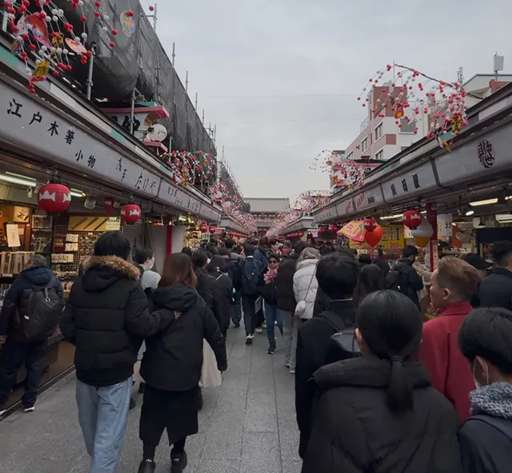
📝 Just off the buzz of Asakusa’s main street, I followed the smoky, mouthwatering aroma to a narrow alley lined with sizzling grills. It was loud with chatter, the hiss of meat hitting charcoal, and the occasional clink of tea glasses. I stopped at a halal yakitori stall, where a cheerful vendor fanned the flames and skewers of chicken thigh and leeks. He seasoned each stick with tare sauce sweet, salty, deep with soy and mirin. My first bite? Juicy, tender, with that perfect kiss of smoke. I stood there, leaning against the counter, completely hooked.
📖 This stall is famous among local Muslims and tourists alike for its certified halal chicken and family-run warmth. They use traditional grilling methods, minus any alcohol-based ingredients.
🗓️ Best Time to Go | 🗓️ Best time to go: After sunset for the full night market vibe |
📍 Location | 📍 Location: Asakusa Side Street near Kaminarimon Gate, Asakusa Station |
💰 Price | 💰 Price: Approx. ¥500 per skewer, cash only |
👨👩👧👦 Best for night owls, solo wanderers, and halal-conscious foodies.
🥟 Steamy Halal Gyoza in Ueno’s Hidden Corner
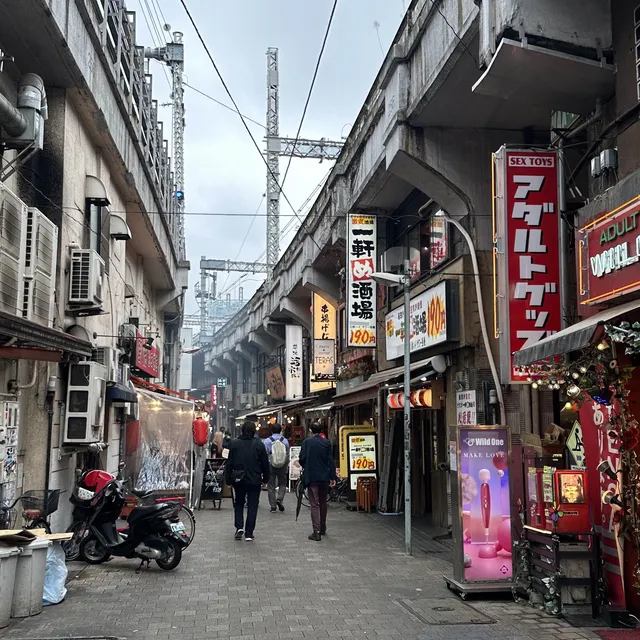
📝 I ducked into a backstreet near Ueno Station and found a tiny halal gyoza stall with a line of people already queuing up. The scent of sesame oil and garlic wafted through the air. Inside, the cook worked fast pressing dumpling skins, stuffing them with halal chicken and chives, and pan-frying until the bottoms crisped into golden perfection. The sizzle alone made my stomach growl. When I bit in, there was a burst of hot, juicy filling and that crispy-chewy contrast that makes gyoza so addictive.
📖 A favorite among Muslim travelers, this stall adapted classic Japanese dumplings using halal chicken and soy-based, alcohol-free sauces.
🗓️ Best Time to Go | 🗓️ Best time to go: Midday for lunch or early evening before it sells out |
📍 Location | 📍 Location: Ameya-Yokocho Market, Ueno Station |
💰 Price | 💰 Price: Approx. ¥600 for 6 pieces, cash or IC card accepted |
👨👩👧👦 Best for snack seekers, picky eaters, and gyoza lovers on a budget.
🍙 Halal Onigiri Heaven at Namba Street Corner
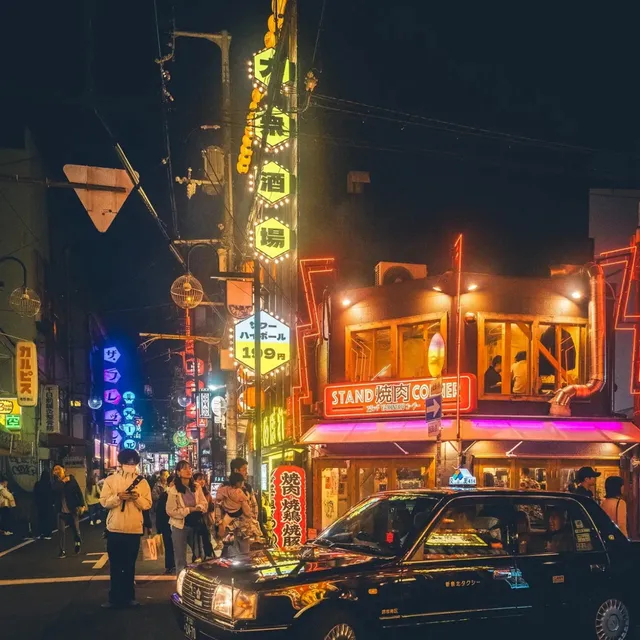
📝 In the heart of Osaka’s lively Namba district, I came across a humble stand with a hand-painted sign: “Halal Onigiri.” The vendor, a kind older woman, shaped rice balls with warm hands, stuffing them with tuna mayo, umeboshi, or spicy chicken. Each one was wrapped in crisp seaweed and handed over with a smile. I took mine a spicy chicken onigiri and bit into a soft, savory explosion. The rice was slightly warm, the filling flavorful, and the seaweed added a briny snap. Simple. Satisfying. Unforgettable.
📖 This local favorite provides classic Japanese rice balls made fresh with halal-certified fillings and no additives.
🗓️ Best Time to Go | 🗓️ Best time to go: Morning or late night for the freshest batch |
📍 Location | 📍 Location: Side street off Namba Walk, near Namba Station |
💰 Price | 💰 Price: Approx. ¥300–¥400 per onigiri, cash only |
👨👩👧👦 Best for breakfast hunters, families on the go, and budget-conscious halal eaters.
🥘 Street-Style Halal Curry Pots in Kyoto
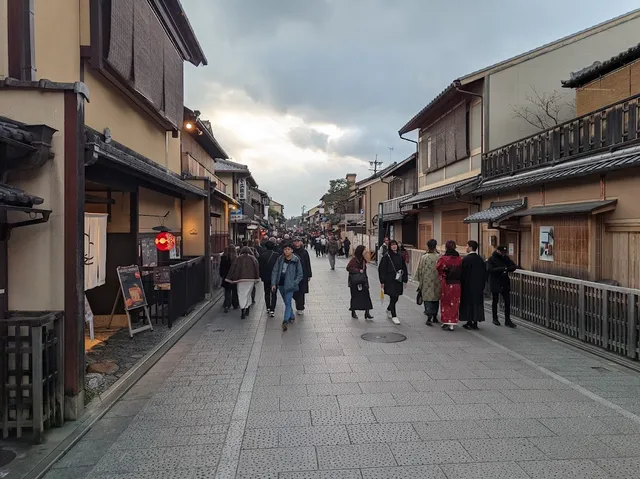
📝 As I wandered the old lanes of Gion, Kyoto, I was drawn to a colorful food cart with the smell of warm spices hanging in the air. The vendor served steaming bowls of Japanese curry thick, rich, and slightly sweet. He ladled the golden sauce over a mound of rice and added halal beef cutlets, all under fairy lights strung above the cart. The first taste was everything: creamy, mildly spiced, with melt-in-your-mouth beef. Eating curry under the stars felt oddly magical.
📖 A halal-certified food cart that’s earned a cult following among travelers for its fusion of classic Japanese curry with Indian spice warmth.
🗓️ Best Time to Go | 🗓️ Best time to go: After 6PM when the lanterns are lit and curry is freshest |
📍 Location | 📍 Location: Gion Hanamikoji Street, near Gion-Shijo Station |
💰 Price | 💰 Price: Approx. ¥1,000 per bowl, cash and PayPay accepted |
👨👩👧👦 Best for evening diners, halal curry fans, and romantic food explorers.
🍦 Halal Matcha Soft Serve from the Streets of Shibuya
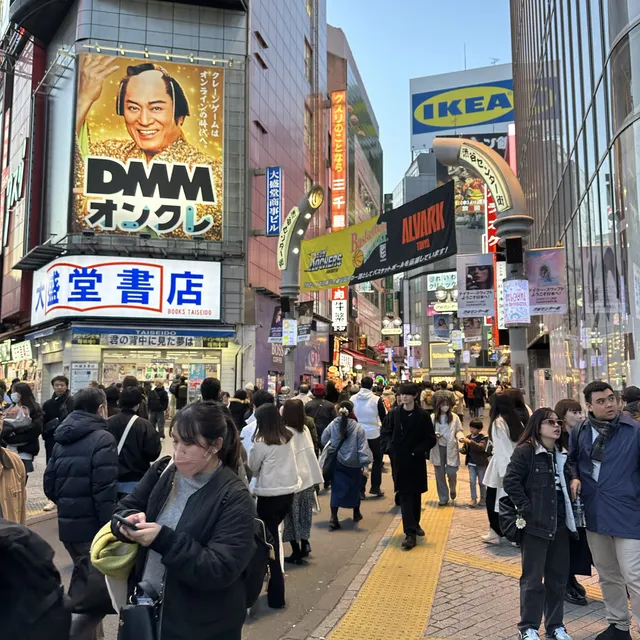
📝 In the heart of Tokyo’s youth scene, I spotted a small dessert truck parked near Shibuya Crossing. There was a crowd of tourists and locals gathered around it, snapping photos of their swirled green matcha soft serve. I had to try it. The ice cream was deep jade green, smooth and creamy with a slightly bitter matcha punch. Topped with chewy halal mochi and red bean paste, it was the perfect mix of cold, sweet, earthy, and chewy. I stood right there, cone in hand, watching the neon lights dance across the street.
📖 This halal-friendly dessert truck is known for using Uji-grade matcha and dairy-free options, making it popular among Muslims and vegans alike.
🗓️ Best Time to Go | 🗓️ Best time to go: Afternoon to early evening when the crowd’s buzzing |
📍 Location | 📍 Location: Inokashira Street near Shibuya Station |
💰 Price | 💰 Price: Approx. ¥500–¥700 per cone, e-wallet accepted |
👨👩👧👦 Best for dessert fans, Instagram lovers, and halal-conscious snackers.
🍽️ Signature Restaurant or Food Institution
🍽️ Dining Like Royalty at Hanasakaji-san, Tokyo
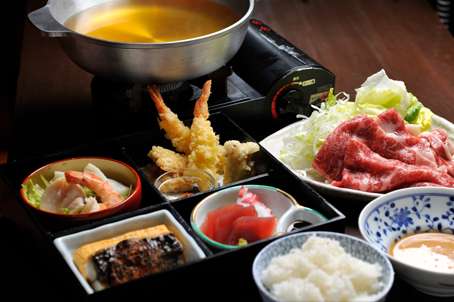
(Source: hanasakaji-san.jp)
📝 Walking into Hanasakaji-san in Shibuya was like stepping into a private Japanese retreat. The calm, tatami-lined interiors and soft lighting felt worlds away from the city's buzz. I was warmly greeted and led to a serene corner table. I ordered their halal wagyu shabu-shabu, delicate slices of Miyazaki beef served with fresh vegetables and a bubbling pot of broth. As I gently swirled the beef in the broth, the aroma deepened. Each bite was tender, luxurious, and melt-in-your-mouth perfect. The homemade sesame sauce? A revelation.
📖 Tokyo’s first halal-certified shabu-shabu restaurant, Hanasakaji-san is known for sourcing premium Miyazaki beef and offering a serene kaiseki-style experience, all within halal standards.
📍 Location: 2-8-10 Shibuya, Shibuya City, Tokyo (5 minutes from Shibuya Station)
🍴 Don’t miss: Halal Wagyu Shabu-Shabu Course
🕒 Reservation recommended? Yes, especially for dinner and weekends.
👨👩👧👦 Great for halal-seeking diners, romantic couples, and special occasions.
🍛 Halal Home Cooking at Matsuri, Osaka
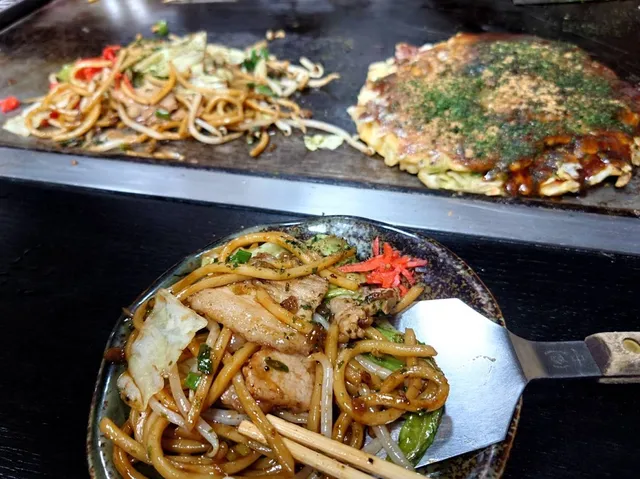
📝 The moment I walked into Matsuri near Namba, it felt like I was visiting a friend’s cozy home. The space was warm and casual, and the staff were incredibly friendly. I sat near the counter and watched as my halal okonomiyaki was prepared on the hotplate. The sizzle and smell of batter, cabbage, and bonito flakes were hypnotic. The end result? A golden, savory pancake topped with tangy sauce and seaweed flakes crispy on the outside, tender inside. I paired it with takoyaki, and it was comfort food bliss.
📖 Matsuri is a Muslim-friendly eatery specializing in Osaka’s most beloved street food, all made halal. It's run by a passionate team eager to share local flavors with international visitors.
📍 Location: 3-27-17 Nambanaka, Naniwa-ku, Osaka (10-minute walk from Namba Station)
🍴 Don’t miss: Halal Okonomiyaki & Takoyaki Combo
🕒 Reservation recommended? Not usually, but weekends can get busy.
👨👩👧👦 Great for families, casual foodies, and halal street food seekers.
🍣 Sushi Meets Serenity at Ganko Sushi, Kyoto
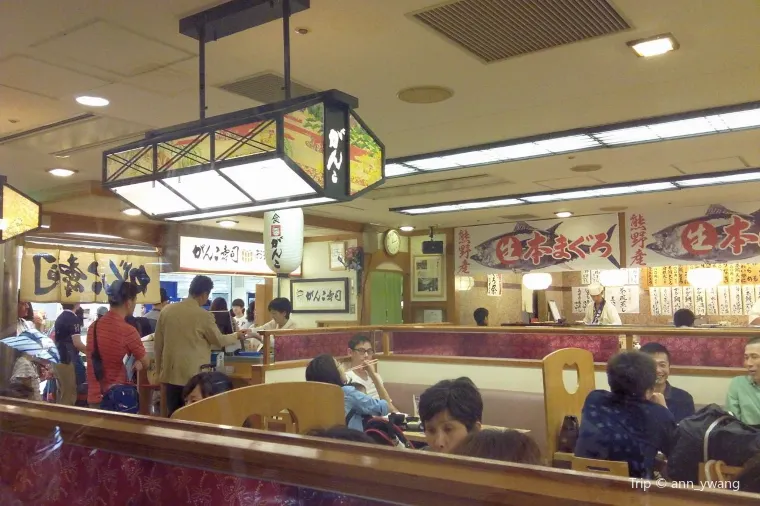
📝 At Ganko Sushi near Kyoto’s Kiyamachi, I was instantly charmed by its peaceful garden entrance and traditional wooden design. Inside, the calm atmosphere set the stage for a mindful meal. I ordered their halal sushi platter, each piece like a tiny work of art. From buttery salmon to delicate tamago, the fish was unbelievably fresh, and the rice had just the right touch of vinegar. Dipping a slice into soy sauce with a hint of wasabi was pure bliss.
📖 Part of a respected Kyoto-based chain, Ganko Sushi offers halal-certified sushi at select branches, giving Muslim travelers access to authentic sushi in a refined setting.
📍Location: 398-3 Kiyomotocho, Nakagyo Ward, Kyoto (near Sanjo Station)
🍴 Don’t miss: Halal Sushi Platter with Seasonal Selections
🕒 Reservation recommended? Yes, especially during lunch and dinner rush.
👨👩👧👦 Great for halal-conscious travelers, sushi lovers, and culture seekers.
🍜 Soul-Warming Ramen at Honolu, Sapporo
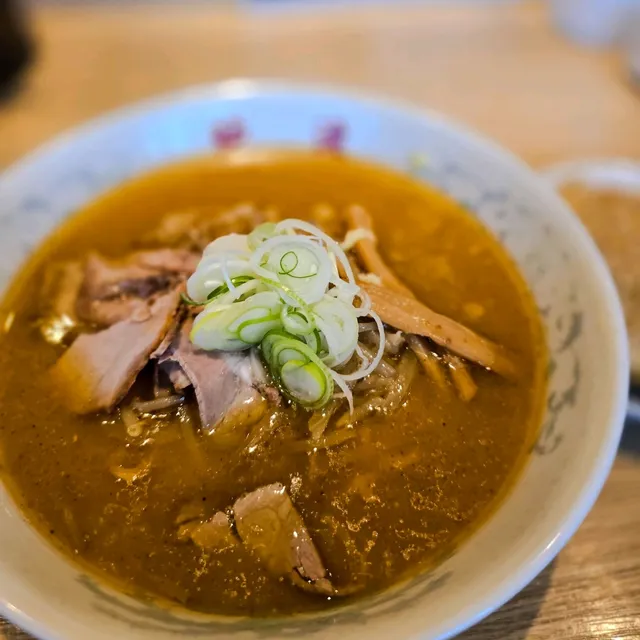
📝 I ducked into Ramen Honolu on a chilly Sapporo evening, drawn in by the smell of simmering broth. The small space was lively but welcoming, and the staff were quick to help. I ordered their halal spicy miso chicken ramen, and the first slurp was fire and comfort in one. The broth was rich, the noodles bouncy, and the tender chicken slices soaked in all the flavor. On a snowy night, it was exactly what I needed.
📖 Honolu is one of Japan’s pioneering halal ramen chains, with branches in major cities. Their Sapporo location brings warmth to the north with full-bodied broths and certified halal ingredients.
📍 Location: 5 Chome-1-1 Minami 3 Jonishi, Chuo Ward, Sapporo (near Susukino Station)
🍴 Don’t miss: Halal Spicy Miso Chicken Ramen
🕒 Reservation recommended? No, walk-ins are welcome.
👨👩👧👦 Great for solo travelers, halal foodies, and noodle lovers.
🥙 Mediterranean Escape at Kebab Ye, Hiroshima
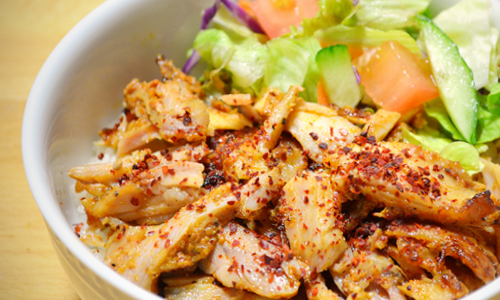
(Source: kebabye-tokyo.com)
📝 After a day of exploring Hiroshima Peace Park, I craved something hearty. Kebab Ye greeted me with the scent of grilled meat and warm spices. The staff were cheerful, and the atmosphere was relaxed. I went with their halal lamb kebab wrap, which came packed with juicy meat, crisp lettuce, and creamy garlic sauce. One bite and I was hooked. The balance of flavors was perfect. I paired it with lentil soup and a mint tea, and left feeling completely satisfied.
📖 Serving halal Turkish food in the heart of Hiroshima, Kebab Ye is known for its generous portions, quick service, and authentic Middle Eastern flavors ideal for Muslim travelers exploring the city.
📍 Location: 1-2 Nakamachi, Naka Ward, Hiroshima (10-minute walk from Hondori Station)
🍴 Don’t miss: Halal Lamb Kebab Wrap with Garlic Sauce
🕒 Reservation recommended? Not needed—casual and walk-in friendly.
👨👩👧👦 Great for backpackers, halal diners on the go, and lunch breaks.
🍰 Café, Bakery or Dessert Spot in Japan
🍵 A Matcha Moment at Saryo Tsujiri, Kyoto
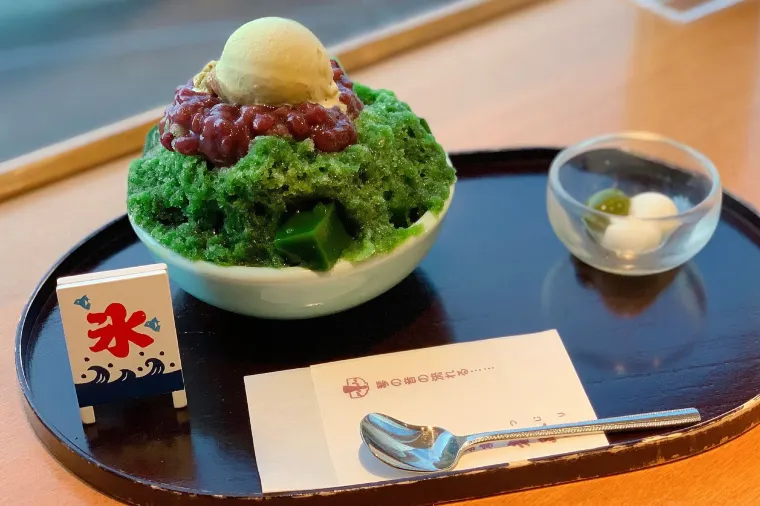
📝 As I stepped into Saryo Tsujiri near Gion, a gentle scent of roasted tea wrapped around me. The wooden interiors were calm and minimal, with soft koto music floating in the background. Locals and tourists sat quietly, lost in their parfaits. I ordered the matcha parfait layers of velvety matcha ice cream, chewy shiratama, red bean paste, and crunchy flakes. Each spoonful was a blend of textures and earthy-sweet flavors that felt like a love letter to Kyoto.
📖 A branch of the renowned Uji tea brand, this café specializes in authentic matcha and hojicha creations. While not halal-certified, most desserts are free from alcohol and gelatin perfect for mindful Muslim diners.
📍 Location: Gion area, near Gion-Shijo Station
💰 Price: ¥800–¥1,300 per dessert, best to visit mid-morning on weekdays
👨👩👧👦 Best for matcha lovers, Muslim-friendly sweet seekers, and solo café hoppers
🧁 Dreamy Layers at Chateraise Premium Yatsudoki, Tokyo
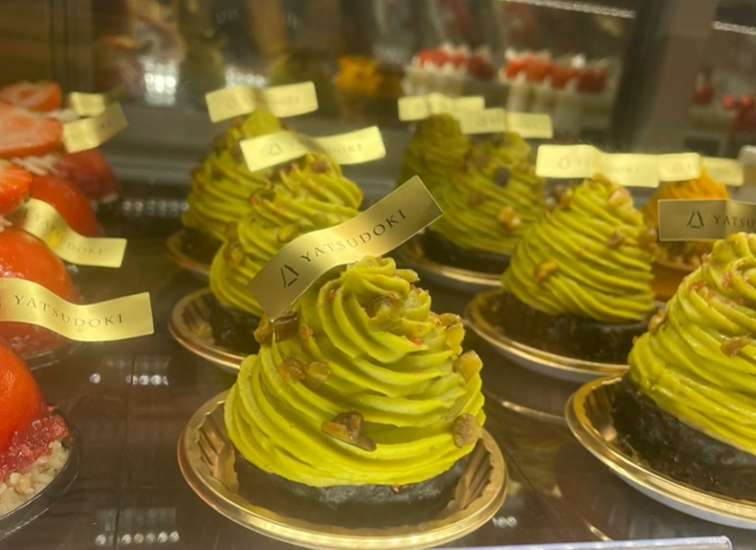
📝 Tucked into a stylish corner of Ginza, Chateraise Premium Yatsudoki felt both chic and comforting. The soft hum of jazz played over conversations in hushed tones. I tried their strawberry shortcake airy sponge, real cream, and bright, sweet berries in perfect harmony. It was delicate but rich, and you could tell they didn’t skimp on quality ingredients.
📖 This upmarket offshoot of the beloved Japanese chain focuses on additive-free, high-quality pastries. Most items here are pork- and alcohol-free, with clear labeling—great for halal-conscious guests.
📍 Location: Ginza, near Higashi-Ginza Station
💰 Price: ¥600–¥900 per slice, quietest around 11am or after 7pm
👨👩👧👦 Best for dessert lovers, halal-conscious travelers, and stylish afternoon breaks
🍮 Caramel Comfort at Flipper's, Osaka
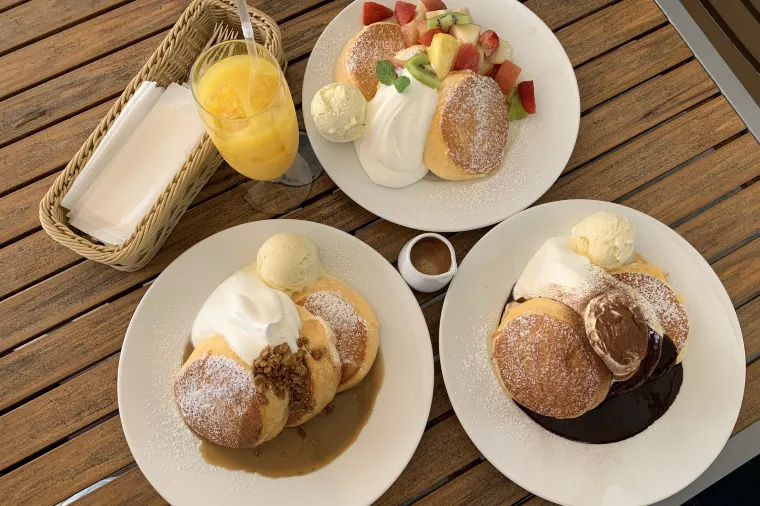
📝 Flipper’s in Namba Park was bright, buzzing, and full of sweet anticipation. The open kitchen let me watch those famous souffle pancakes take shape. I ordered the signature brûlée pancakes golden and jiggly, topped with torched caramel and a cloud of whipped cream. The soft, custard-like center melted with every bite, while the top gave that satisfying crunch.
📖 Known for their “miracle” pancakes, Flipper’s offers Japanese-style soufflé stacks that are mostly pork- and alcohol-free. They use simple, natural ingredients and clearly list allergens and additives.
📍 Location: Namba Parks, near Namba Station
💰 Price: Around ¥1,400 per set, best visited after 2pm on weekdays
👨👩👧👦 Best for café-hoppers, Muslim-friendly brunch seekers, and couples on a sweet date
🍓 A French Twist at C3 (C Cube), Fukuoka
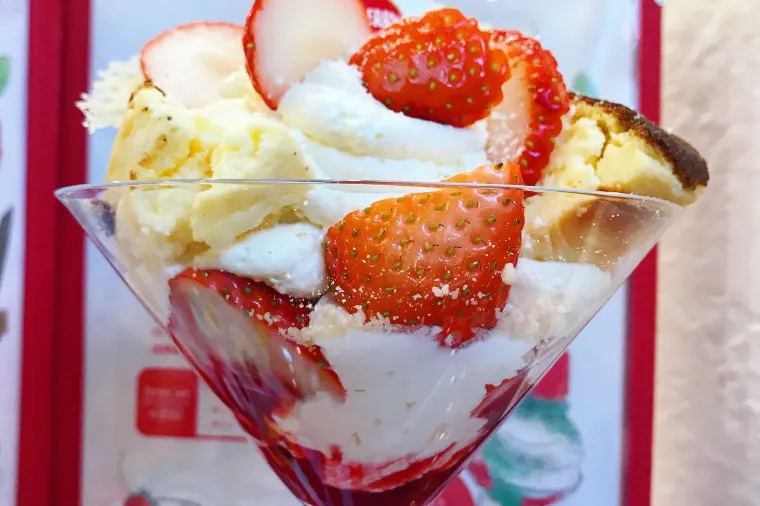
📝 This hidden patisserie inside Hakata Station felt like a Parisian escape. With soft lighting, pale walls, and classical music, C3 had a quiet elegance. I went for their seasonal strawberry rare cheesecake, a silky dome with a refreshing mousse and biscuit base, topped with fresh fruit. It was light, tangy, and artfully presented.
📖 C3 offers Italian- and French-inspired desserts with Japanese finesse. While not halal-certified, many items contain no alcohol or gelatin, and staff are helpful with ingredient questions.
📍 Location: Hakata Station, near the Shinkansen gates
💰 Price: ¥500–¥700 per slice, quietest in early afternoon
👨👩👧👦 Best for refined dessert lovers, halal-aware travelers, and solo café dates
☕ A Cozy Hideout at Good Day Coffee, Sapporo
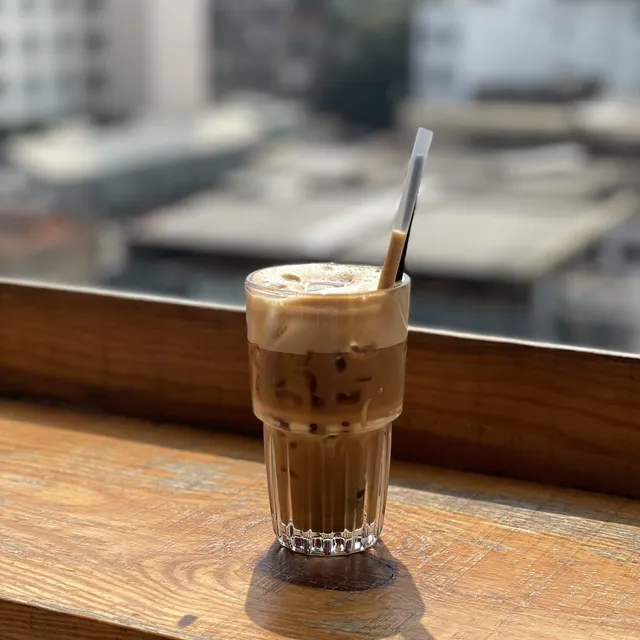
📝 It was snowing lightly when I ducked into Good Day Coffee, just off a quiet street in central Sapporo. Inside, the scent of roasted beans filled the room, with indie music playing and locals hunched over laptops or deep in conversation. I ordered their seasonal yuzu latte, bright citrus balanced with rich espresso and steamed milk. It was cozy, surprising, and warming from the inside out.
📖 This minimalist café is a local favorite for its rotating seasonal drinks and rustic bakery goods. Though not halal-certified, most items are safe for halal-conscious visitors avoiding alcohol and pork.
📍 Location: Odori area, near Nishi-Juitchome Station
💰 Price: ¥500–¥750 per drink, quietest just after opening at 10am
👨👩👧👦 Best for solo travelers, Muslim-friendly café lovers, and remote workers
🛍️ Local Snack or Food Souvenir
🎁 A Sweet Souvenir: Halal Tokyo Banana
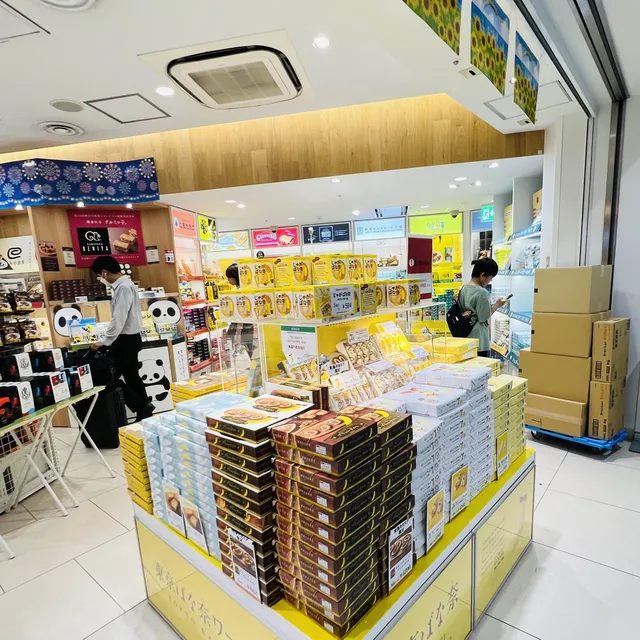
📝 I picked up a box of Tokyo Banana right before my flight at Haneda Airport. The soft, fluffy sponge cake wraps around a creamy banana custard center that’s just the right amount of sweet. It’s individually wrapped, making it perfect for sharing (or not!).
📖 This beloved snack is a symbol of Tokyo omiyage culture. While not halal-certified, it contains no pork or alcohol, making it a popular treat among Muslim travelers.
🛒 Where to buy: Haneda Airport, Tokyo Station, or most major souvenir shops
🎁 Travel-friendly? Yes – boxed, lightweight, and has a decent shelf life
👨👩👧👦 Great for travelers who want a compact, halal-conscious gift
🍘 Crunch Time: Halal-Friendly Rice Crackers from Kyoto
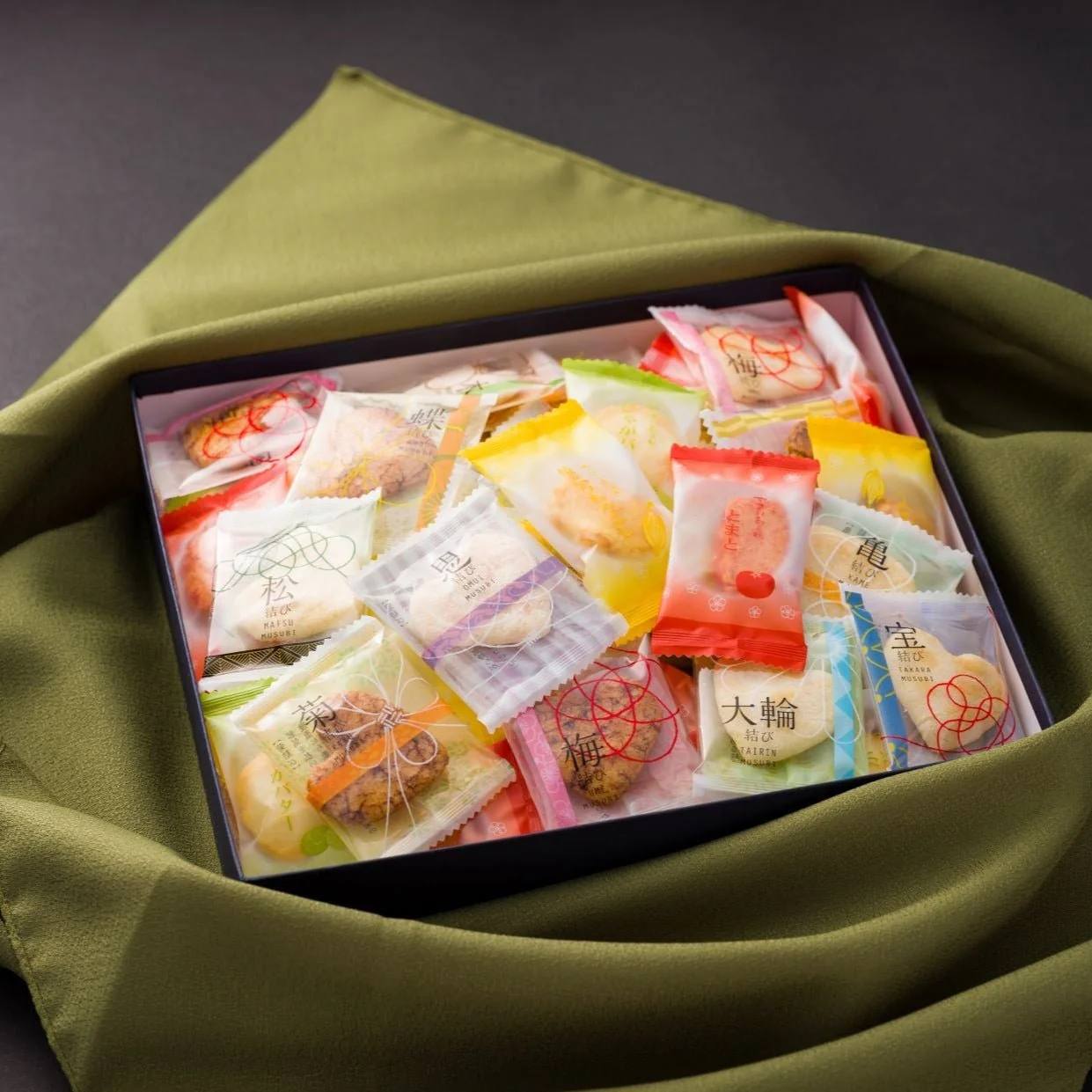
(Source: tokyofreshdirect.com)
📝 I stumbled upon these beautifully wrapped senbei at Nishiki Market in Kyoto. They’re lightly salted, perfectly crisp, and some come with seaweed or soy glaze. I chose the plain and wasabi flavors bold but not overpowering.
📖 Rice crackers are a traditional Japanese snack, often given during seasonal festivals. These ones are made without alcohol or animal-based seasoning, ideal for halal eaters.
🛒 Where to buy: Nishiki Market, Kyoto Takashimaya, or Isetan Kyoto
🎁 Travel-friendly? Yes – non-perishable and neatly packed in paper boxes
👨👩👧👦 Great for travelers who want a savory halal snack with a traditional twist
🍠 A Taste of Autumn: Yaki Imo Chips from Sapporo
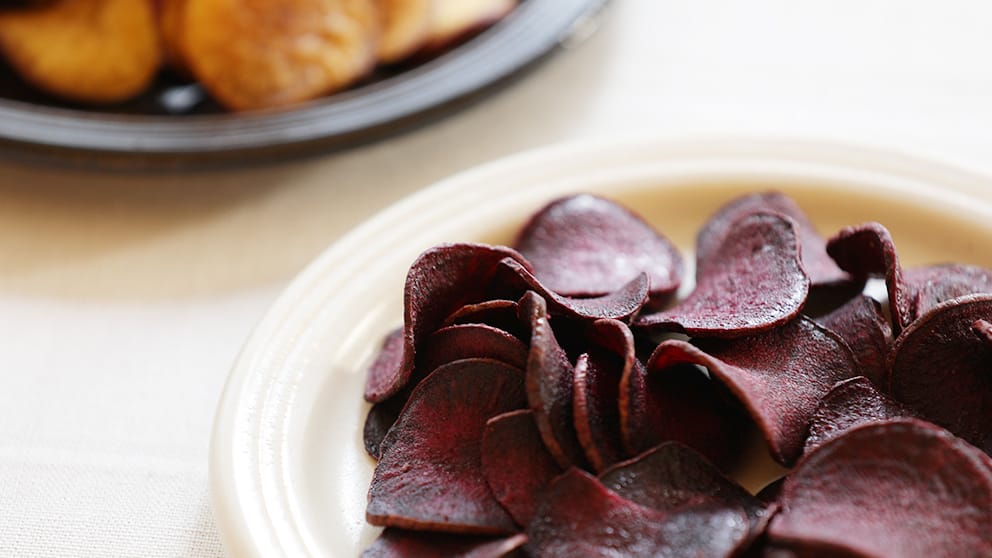
(Source: japapo.co.jp)
📝 While browsing a local grocery store in Sapporo, I found sweet potato chips made from Hokkaido-grown yaki imo. They’re crispy, naturally sweet, and have this cozy roasted flavor. The resealable pouch made them easy to munch on throughout my trip.
📖 Roasted sweet potatoes are a beloved fall and winter snack in Japan. These chips offer that nostalgic flavor in a shelf-stable, crunchy form—no additives, just pure taste.
🛒 Where to buy: Seicomart, Sapporo Station souvenir floor
🎁 Travel-friendly? Yes – lightweight and durable packaging
👨👩👧👦 Great for travelers who want a natural, halal-friendly snack with local flair
🍵 Elegant Gifting: Halal-Friendly Matcha Cookies from Uji
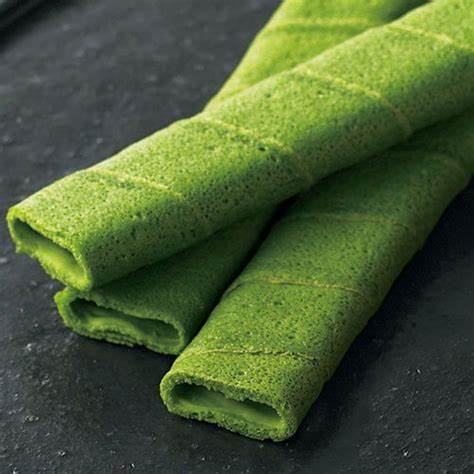
(Source: japanesetaste.jp)
📝 In Uji, I found delicate matcha butter cookies in a beautiful tin at a family-run tea shop. They had a soft crumble, deep green tea aroma, and a subtle sweetness that lingered. I ended up buying extra tins to gift back home.
📖 These cookies highlight the region’s prized matcha, which is known for its smooth, umami-rich depth. Often paired with tea, they’re a modern way to enjoy a traditional ingredient.
🛒 Where to buy: Uji tea shops, Kyoto Station souvenir floor
🎁 Travel-friendly? Yes – sturdy tins and long shelf life
👨👩👧👦 Great for travelers who want a refined, halal-conscious edible gift
🍫 A Sweet Discovery: Royce' Potato Chip Chocolate from Hokkaido
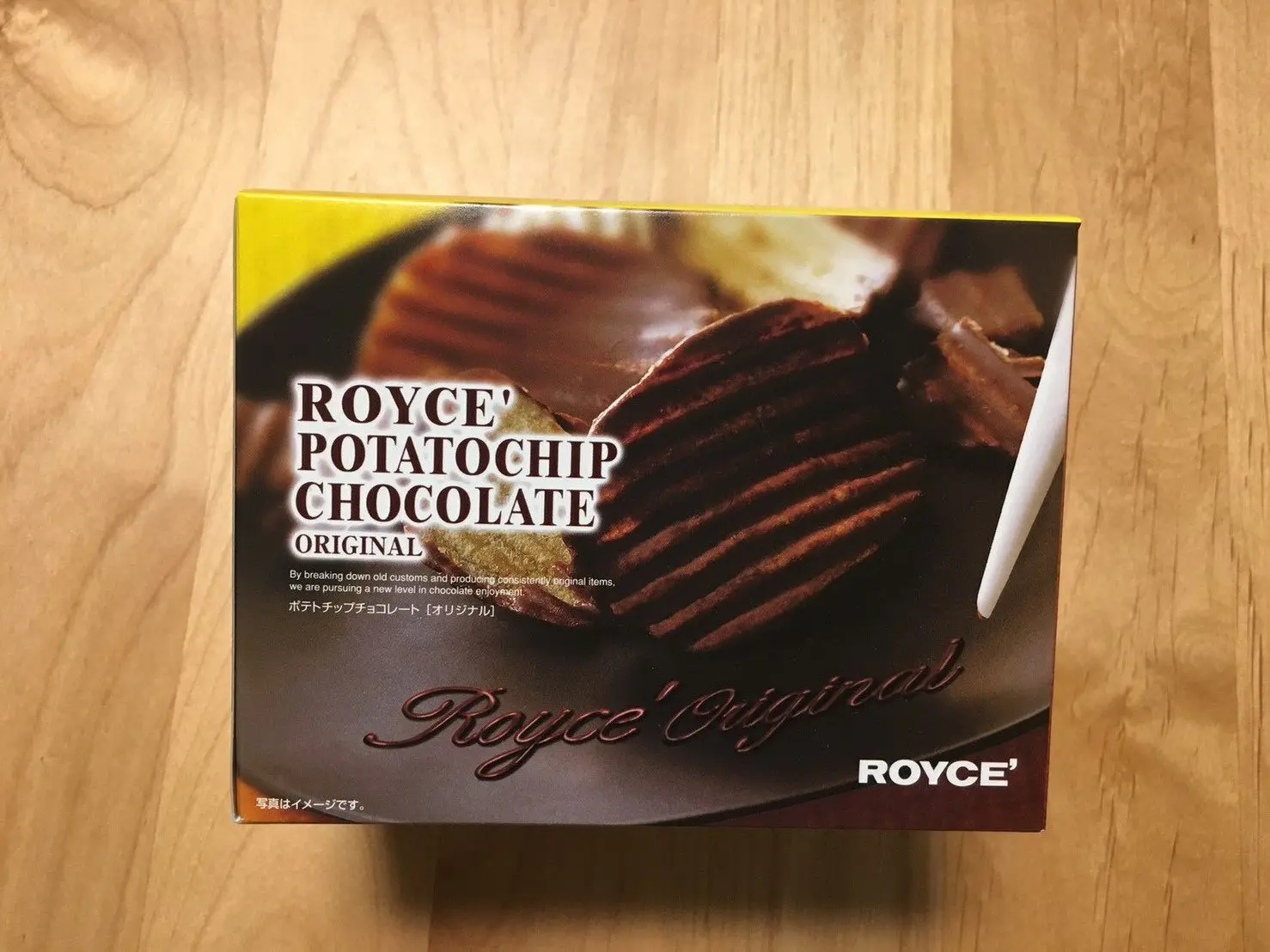
📝 I first tried Royce' chocolate-covered potato chips in a shop at New Chitose Airport. The sweet-salty balance was addictive—crispy chips dipped in silky milk chocolate, packaged in an elegant box.
📖 Royce’ is a premium chocolate brand from Hokkaido, famous for combining high-quality chocolate with surprising textures. While not halal-certified, this specific item contains no alcohol or gelatin.
🛒 Where to buy: New Chitose Airport, Daimaru Sapporo, Royce’ boutiques nationwide
🎁 Travel-friendly? Yes – boxed and temperature-stable for short flights
👨👩👧👦 Great for travelers who want a luxe, halal-conscious treat with a twist
🛣️ Food Street or Dining Zone
🍜 Halal Noodle Nirvana at Tokyo Camii Bazaar Street
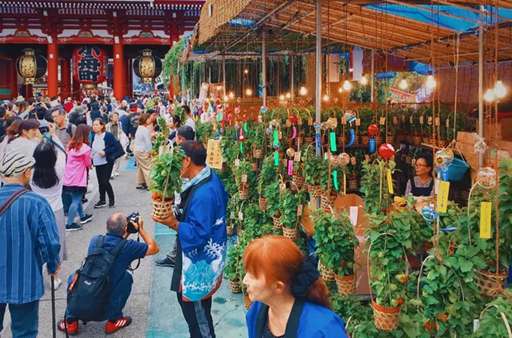
📝 The scent of grilled lamb skewers and sizzling spices lured me in as I wandered the small but bustling lane just beside Tokyo Camii Mosque. It was Jummah, and the after-prayer crowd was thick families, students, and curious tourists all buzzing around the bazaar stalls. I followed the smoky aroma and sat down for a plate of Turkish-style doner kebab wrapped in fluffy flatbread. Beside me, a vendor handed over steaming bowls of halal ramen with marinated chicken, warm, peppery, and rich in umami. It felt like a halal hideout in the middle of Tokyo.
📖 Located in Shibuya's Yoyogi-Uehara area, this small stretch near Tokyo Camii offers a niche but growing halal food scene with Turkish, Middle Eastern, and halal Japanese dishes. It's especially lively during Islamic holidays and after Friday prayers.
🍽️ What to try: Doner kebab wraps, halal ramen, baklava
🍱 Top Things to Eat Here
- Halal chicken ramen – Comforting with a savory soy base
- Doner kebab wrap – Juicy meat wrapped in soft bread
- Kofta curry – Spicy, hearty, and satisfying
- Baklava – Flaky, sweet, and nutty
- Turkish tea – Light and refreshing with mint
- Falafel pita – Crispy outside, soft inside
📅 Best time to visit: 12–2 PM after Friday prayers or weekends
📍 How to get there: 5-min walk from Yoyogi-Uehara Station
💰 Budget: Approx. ¥800–¥1500 per person depending on appetite
💡 Pro Tips
“Friday lunch is the best time for variety.”
“Most stalls speak basic English or provide pictures.”
“Take your food to the mosque courtyard for a picnic vibe.”
👨👩👧👦 Perfect for Muslim travelers, solo diners, and foodies seeking halal street eats with cultural vibes.
🍢 Yakitori Nights & Halal Bites in Osaka’s Shin-Osaka Halal Street
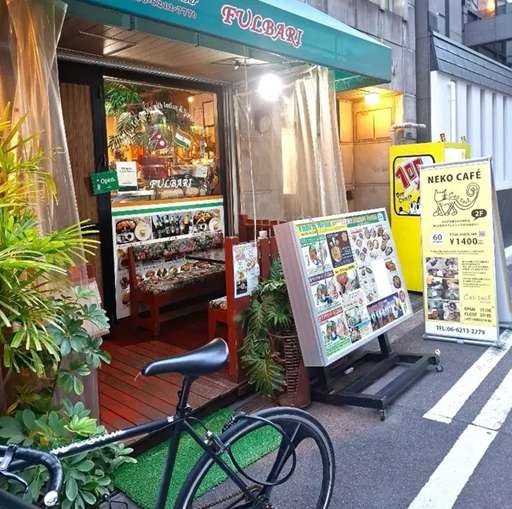
📝 It was just past sunset when I reached Shin-Osaka’s Halal Street, and the air was filled with savory whispers of grilled meat and cumin. Flickering lanterns and Japanese shopfronts framed a surprising array of halal eateries. I followed a queue to a halal yakitori shop juicy skewers of chicken brushed with sweet soy sauce, charred just enough to deepen the flavor. I paired it with halal takoyaki, golden spheres filled with octopus and halal sauce, hot enough to burn my tongue in the best way.
📖 Close to the Shin-Osaka Station, this mini food zone has become a magnet for Muslim travelers, offering Japanese classics made halal alongside Indonesian and Malaysian comfort food. It’s a convenient stop for travelers hopping trains.
🍽️ What to try: Halal yakitori, takoyaki, Indonesian nasi goreng
🍱 Top Things to Eat Here
- Halal yakitori – Charred, juicy skewers of chicken and leek
- Halal takoyaki – Crisp outside, molten inside
- Nasi goreng – Fried rice packed with spices and sambal
- Halal gyoza – Lightly pan-fried dumplings
- Matcha latte – Smooth and refreshing
- Halal Japanese curry – Sweet and mild
📅 Best time to visit: 6–9 PM for dinner rush
📍 How to get there: Near Shin-Osaka Station, East Exit
💰 Budget: Approx. ¥1000–¥2000 per person
💡 Pro Tips
“Try the yakitori early, it sells out fast.”
“Many shops here are Muslim-owned.”
“English menus are widely available.”
👨👩👧👦 Perfect for Muslim travelers, halal foodies, and train-hopping tourists seeking a quick meal.
🍥 Ueno Ameyoko Halal Alley: Sweet, Savory, and So Tokyo
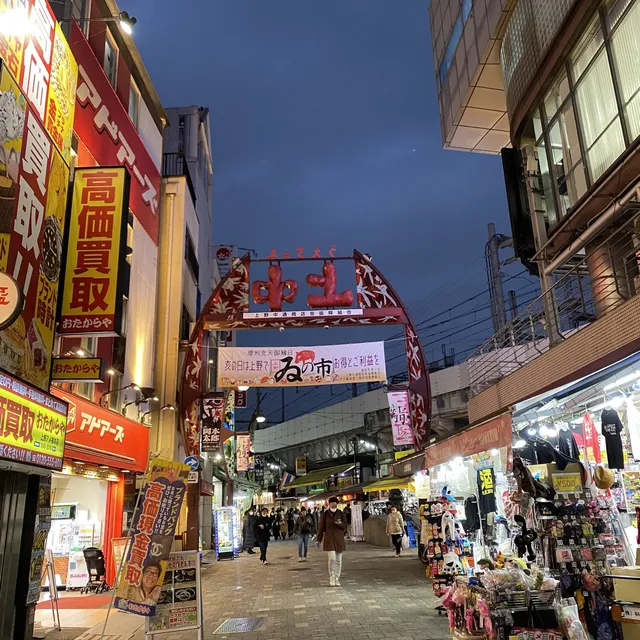
📝 Stepping into Ameyoko during peak lunch hour was like jumping into a whirlpool of color, sound, and spice. Under the train tracks, halal stalls pushed up against fishmongers and street snack shops. I grabbed a skewer of halal wagyu beef it was buttery, seared, and sprinkled with sea salt. Then came a cone of matcha soft serve, rich and creamy with a bitter edge. Locals zipped by with bento boxes in hand, while tourists lingered over grilled squid and gyoza. The energy was electric.
📖 Ameyoko is a famed shopping street near Ueno Station, and tucked within it are several halal-friendly eateries and snack stalls. Known for its variety and street-market chaos, it's popular with bargain hunters and curious food lovers alike.
🍽️ What to try: Halal wagyu skewers, matcha ice cream, halal gyoza
🍱 Top Things to Eat Here
- Halal wagyu skewers – Tender, rich, and flavorful
- Matcha soft serve – A bittersweet Tokyo treat
- Halal gyoza – Crunchy and juicy with garlic dip
- Tandoori chicken rice bowls – Fragrant and filling
- Halal ramen – Creamy broth, firm noodles
- Fried squid – Street-style and snackable
📅 Best time to visit: 12–2 PM or 6–8 PM for peak food hours
📍 How to get there: 3-min walk from Ueno Station
💰 Budget: Approx. ¥1000–¥1800 per person
💡 Pro Tips
“Look for the halal stickers on shop windows.”
“Eat standing up like the locals—it’s part of the vibe.”
“Try dessert first if you see a queue.”
👨👩👧👦 Perfect for street food lovers, Muslim travelers, and bargain-hunting eaters.
🥟 Kobe’s Motomachi Halal Corner: Flavors of the World
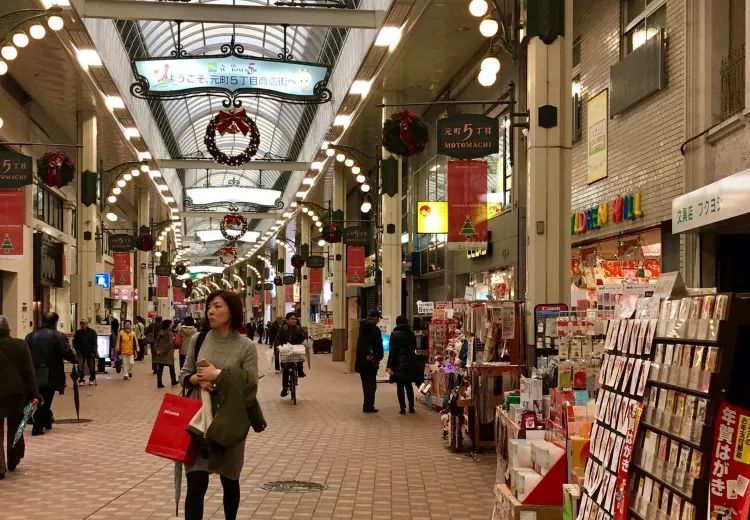
📝 Kobe’s Motomachi was alive with chatter, clinking chopsticks, and warm, savory steam rising into the dusk. I followed the scent of garlic and ghee to a small halal dumpling shop. The lamb-filled gyoza were crisp on the bottom, juicy in the center. Around the corner, I found biryani served in bento boxes, vibrant with saffron and spice. Lanterns glowed overhead and families crowded into small shops offering halal wagyu, naan pizzas, and even Korean bulgogi made halal.
📖 Nestled near Kobe Chinatown, this side alley of Motomachi has grown into a global halal food hub. It’s compact but diverse, serving Middle Eastern, South Asian, and halal Japanese fusion dishes.
🍽️ What to try: Halal gyoza, naan pizza, biryani bento
🍱 Top Things to Eat Here
- Halal dumplings – Crispy, juicy, and spiced to perfection
- Naan pizza – Fusion done right
- Chicken biryani – Aromatic and satisfying
- Halal bulgogi – Sweet, savory Korean beef
- Matcha parfait – Layers of cream, jelly, and matcha
- Mango lassi – Creamy and cooling
📅 Best time to visit: 5–8 PM for dinner buzz
📍 How to get there: 2-min walk from Motomachi Station
💰 Budget: Approx. ¥1000–¥2000 per person
💡 Pro Tips
“Come early on weekends, seating is limited.”
“Mix and match from multiple stalls.”
“Try at least one Japanese-fusion item.”
👨👩👧👦 Perfect for Muslim foodies, fusion lovers, and families exploring Kobe.
🍛 Halal Harmony in Kyoto’s Gion Yasaka Street
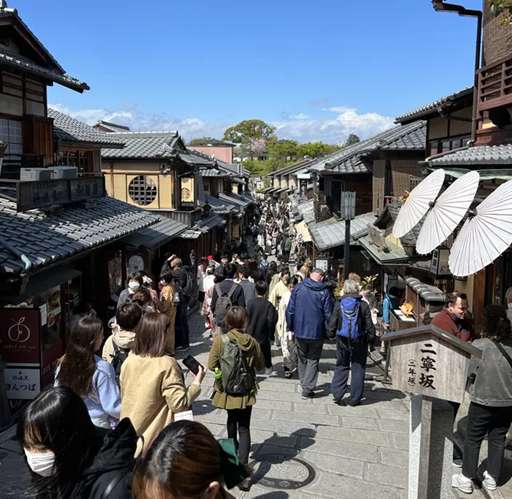
📝 In the shadow of Gion’s historic wooden buildings, I stumbled upon a halal food pocket glowing with life. The street smelled of roasted chicken and curry leaves. I ducked into a café offering halal Japanese curry with rice molded into cherry blossom shapes almost too pretty to eat. A nearby stall had takoyaki with a halal twist, sizzling and drizzled with sweet soy glaze. The hum of conversations in multiple languages made the experience feel truly global.
📖 Located near Yasaka Shrine in Kyoto’s historic Gion district, this food zone blends traditional Kyoto charm with modern halal innovation. It’s small but caters thoughtfully to Muslim visitors.
🍽️ What to try: Halal Japanese curry, sakura-themed bentos, halal takoyaki
🍱 Top Things to Eat Here
- Halal curry rice – Mild, creamy, and aromatic
- Sakura bento – Instagram-worthy and delicious
- Halal takoyaki – Crispy and gooey
- Tofu cheesecake – Light and silky
- Yuzu soda – Citrusy and refreshing
- Miso ramen – Light, with halal-certified ingredients
📅 Best time to visit: 11 AM–2 PM for lunch or sunset hours for ambience
📍 How to get there: 5-min walk from Gion-Shijo Station
💰 Budget: Approx. ¥900–¥1800 per person
💡 Pro Tips
“Perfect for combining food with sightseeing.”
“Look out for seasonal bento designs.”
“English-speaking staff are common.”
👨👩👧👦 Perfect for Muslim travelers, culture-loving foodies, and Kyoto explorers.
🍢Japan’s Halal Food Streets Are a Feast for the Senses
Exploring halal food streets across Japan from Tokyo to Kyoto was more than just a culinary adventure; it was a journey through diverse cultures, bold flavors, and warm hospitality. Each spot offered something unique: smoky yakitori in Osaka, sweet matcha in Ueno, vibrant biryani in Kobe, and artistic curry in Kyoto. Whether you're craving authentic Japanese tastes made halal or looking for comforting dishes from across the Muslim world, these vibrant dining zones serve up flavor with heart.
For Muslim travelers, adventurous foodies, or anyone curious about Japan’s growing halal scene, these food streets are not to be missed. Come hungry, bring cash, and follow your nose you’re in for something special. 🍢🍜🕌
- Satu Arah
- Pulang-Pergi
- direct cheapest
 CGK23:257h 25mLangsungHND08:50Jakarta - Tokyo|Sen, 15 Sep|Garuda Indonesia£171£26636% OFF36% OFF£266£171
CGK23:257h 25mLangsungHND08:50Jakarta - Tokyo|Sen, 15 Sep|Garuda Indonesia£171£26636% OFF36% OFF£266£171  CGK23:257h 25mLangsungHND08:50Jakarta - Tokyo|Sel, 7 Okt|Garuda Indonesia£216£26619% OFF19% OFF£266£216
CGK23:257h 25mLangsungHND08:50Jakarta - Tokyo|Sel, 7 Okt|Garuda Indonesia£216£26619% OFF19% OFF£266£216 CGK12:3016h 10m1 stopNRT06:40Jakarta - Tokyo|Rab, 6 Agt|Scoot Airlines£93£26665% OFF65% OFF£266£93
CGK12:3016h 10m1 stopNRT06:40Jakarta - Tokyo|Rab, 6 Agt|Scoot Airlines£93£26665% OFF65% OFF£266£93 CGK20:0532h 35m1 stopNRT06:40Jakarta - Tokyo|Sab, 4 Okt|Scoot Airlines£93£93
CGK20:0532h 35m1 stopNRT06:40Jakarta - Tokyo|Sab, 4 Okt|Scoot Airlines£93£93 CGK20:0532h 10m1 stopNRT06:15Jakarta - Tokyo|Sab, 25 Okt|Scoot Airlines£93£93
CGK20:0532h 10m1 stopNRT06:15Jakarta - Tokyo|Sab, 25 Okt|Scoot Airlines£93£93 JKT1:00 PM3h 5mLangsungTYO2:00 PMJakarta - Tokyo|Sat, Aug 9|Garuda IndonesiaTemukan Penerbangan LainnyaTemukan Penerbangan Lainnya
JKT1:00 PM3h 5mLangsungTYO2:00 PMJakarta - Tokyo|Sat, Aug 9|Garuda IndonesiaTemukan Penerbangan LainnyaTemukan Penerbangan Lainnya
Harga yang dicoret dihitung berdasarkan harga rata-rata rute terkait di Trip.com.
🏯 FAQ: Halal Food in Japan for Muslim Travelers
Is halal food easily available in Japan?
Yes, it’s becoming more accessible, especially in major cities like Tokyo, Osaka, and Kyoto. Although Japan isn’t a Muslim-majority country, the local awareness about halal food has grown in recent years. You’ll find more restaurants, especially in popular tourist areas, that cater to Muslim dietary needs.What kind of halal food can I find in Japan?
Halal dining options in Japan range from local Japanese dishes like ramen, sushi, and wagyu beef prepared according to halal standards, to international cuisines such as Indian, Turkish, and Indonesian food. Some restaurants are fully halal-certified, while others may offer Muslim-friendly or vegetarian menus. It’s always a good idea to ask about ingredients when ordering.How can I find halal restaurants while traveling?
There are several ways to locate halal-friendly restaurants. Many places display halal certification signs, usually near the entrance or on their menus. You can also use apps like Halal Navi, HappyCow, or even Google Maps by searching for “halal food near me.” Online reviews from fellow Muslim travelers often help verify a restaurant’s authenticity.Are halal food options available at airports and tourist attractions?
Yes, Japan’s international airports like Narita, Haneda, and Kansai have halal-certified restaurants, food courts, and prayer spaces. Similarly, popular sightseeing areas such as Asakusa, Ueno, and Namba typically have nearby halal options. You can enjoy your trip without worrying too much about where to eat.Can I rely on convenience stores or supermarkets for halal food?
While it’s rare to find halal-certified meals in convenience stores, you can still find safe options like seafood onigiri, salads, fruits, and snacks made without animal-based additives. It’s important to read the labels or use translation apps to check for ingredients like pork extract or alcohol in sauces. For peace of mind, many travelers bring their own snacks for day trips.Which cities in Japan are the most halal-friendly?
Tokyo, Osaka, and Kyoto are the top three cities with the best access to halal food. In Tokyo, neighborhoods like Asakusa, Shinjuku, and Ueno are great spots to explore. Osaka’s Namba and Shinsaibashi areas are also known for their Muslim-friendly dining. Kyoto has several halal options near the station and around Gion. Outside of these, cities like Fukuoka, Nagoya, and Sapporo are gradually increasing their offerings.Are there halal grocery stores or markets?
Yes, especially in cities with larger Muslim populations. In Tokyo’s Shin-Okubo or Osaka’s Ikuno Korea Town, you can find small halal grocery shops that sell certified meat, spices, and other essentials. Some larger supermarkets like Gyomu Super also stock halal products, though availability may vary by location.Can I cook my own halal meals while in Japan?
Definitely. Many Muslim travelers prefer to stay in accommodations with kitchen facilities, such as Airbnb apartments or Muslim-friendly hotels. You can buy fresh vegetables, rice, and seafood from local markets, and if you locate a halal store, you can even pick up certified meat and seasonings to cook a proper halal meal during your trip.
